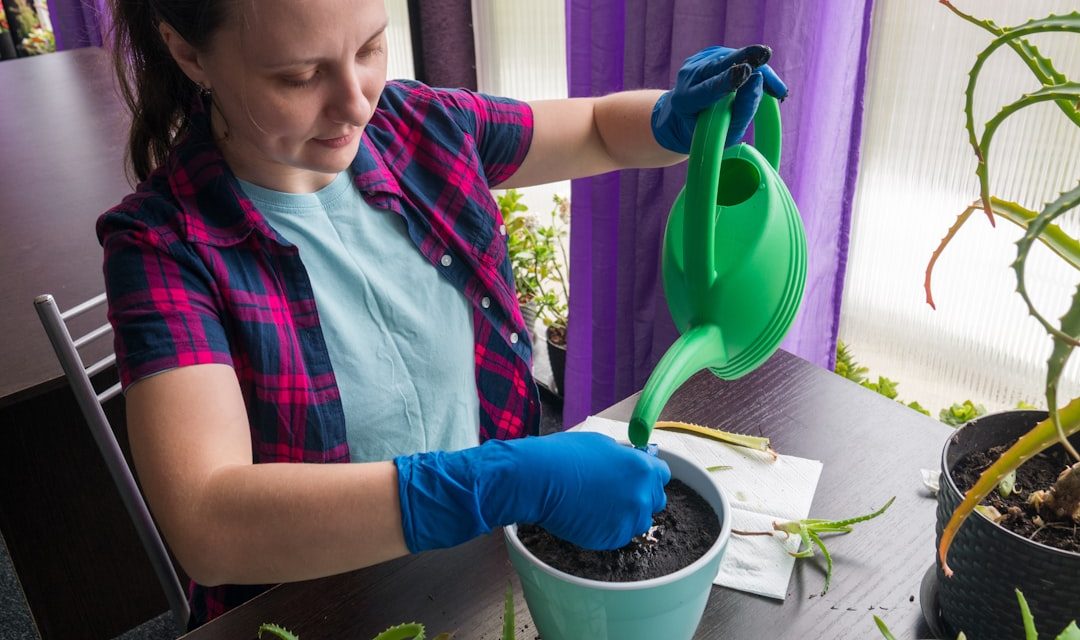From Stress to Serenity: How Gardening Boosts Mental Health and Quality of Life
In today’s fast-paced world, the quest for serenity amidst stress is more important than ever, and gardening emerges as a powerful ally in this pursuit. Engaging in gardening for stress relief not only fosters mental well-being but also offers a sanctuary where one can nurture plants and find tranquility. This therapeutic gardening activity is a gateway to improved mood and enhanced quality of life, blending the joys of nature with the satisfaction of creation. As you cultivate your garden, you engage in outdoor activities for mental health, reaping the benefits of gardening that extend beyond the physical to touch the emotional and psychological realms. Embrace the art of gardening and discover a path to serenity and fulfillment, right in your own backyard.
Therapeutic Gardening Benefits
Mental Well-Being Through Nature
Gardening offers a unique avenue for enhancing mental well-being through direct interaction with nature. This activity promotes mindfulness, encouraging you to focus on the present moment as you tend to your plants. The repetitive actions of planting, watering, and weeding serve as a form of meditation, helping to reduce anxiety and stress. Furthermore, the natural surroundings stimulate the senses, providing a calming effect. Studies suggest that engaging with nature releases endorphins, which improve mood and foster a sense of peace. Additionally, the act of nurturing plants offers a sense of accomplishment and purpose, boosting self-esteem. By spending time in your garden, you can disconnect from digital distractions and connect with the natural world, providing a refreshing break from daily pressures. Engage in therapeutic gardening to harness these mental health benefits and find balance in your life.
Improve Mood Through Gardening
Gardening is a powerful tool for improving mood and emotional health. The simple act of being outdoors and engaging with nature can significantly elevate your spirits. Exposure to sunlight increases the production of serotonin, a hormone associated with happiness and calm. Moreover, the physical activity involved in gardening releases endorphins, the body’s natural mood lifters. The sense of accomplishment that comes from nurturing plants and seeing them grow can provide a robust emotional boost. This feeling of achievement can be especially beneficial for individuals dealing with depression or anxiety. Additionally, the rhythmic activities of gardening, such as digging and planting, offer a form of physical meditation that can help clear the mind. By cultivating a garden, you are not only beautifying your space but also fostering a more positive outlook on life. Embrace gardening to experience these mood-enhancing benefits firsthand.
Stress Relief and Tranquility
Gardening is a proven method for stress relief, allowing you to find tranquility in the midst of life’s chaos. The act of working with soil, plants, and natural elements can be incredibly grounding. As you immerse yourself in the process, stressors seem to melt away. The garden becomes a sanctuary where you can escape the pressures of daily life and focus on the calming rhythm of nature. Engaging in gardening tasks, such as weeding or pruning, provides a physical outlet for stress, channeling nervous energy into productive activity. Moreover, the quiet environment of a garden fosters introspection and relaxation. The natural beauty and green surroundings promote a sense of peace and well-being. By spending time in your garden, you create a mental space to unwind and rejuvenate. Discover the soothing effects of gardening and incorporate it into your routine to combat stress and enhance tranquility.
Gardening and Physical Health
Exercise and Fresh Air Benefits
Gardening is more than just a relaxing pastime; it is also an effective form of exercise that contributes to physical health. Activities such as digging, planting, and raking engage various muscle groups, promoting strength, flexibility, and endurance. Regular gardening sessions can burn calories and improve cardiovascular health. In addition to physical exertion, gardening offers the benefit of fresh air, which enhances respiratory function and boosts energy levels. The exposure to natural sunlight aids in the synthesis of vitamin D, essential for bone health and immune function. This combination of exercise and outdoor exposure supports overall wellness and vitality. Furthermore, the physical demands of gardening can improve coordination and balance, particularly beneficial for older adults. By incorporating gardening into your routine, you can enjoy a holistic approach to fitness and well-being. Embrace the physical benefits of gardening as part of a healthy, active lifestyle.
Outdoor Activities for Mental Health
Outdoor activities, like gardening, play a crucial role in supporting mental health. Engaging with the natural environment helps to reduce symptoms of anxiety and depression. The open space and fresh air provide a calming backdrop that enhances relaxation and mindfulness. Gardening encourages you to step away from screens and gain a fresh perspective. This break from technology can alleviate mental fatigue and improve concentration. Additionally, the sensory experience of being outdoors—feeling the breeze, hearing birds chirp—contributes to a sense of well-being. The routine of tending to a garden instills purpose and structure, providing a mental anchor. Social gardening activities can also foster community connections, reducing feelings of loneliness. By incorporating outdoor activities like gardening into your lifestyle, you can enhance your mental health and resilience. Embrace the healing power of the outdoors to nurture your mind and spirit.
Quality of Life Enhancement
Nurturing Plants for Accomplishment
Nurturing plants in a garden provides a profound sense of accomplishment and satisfaction. Watching a seed grow into a flourishing plant is not just rewarding; it also instills a sense of purpose. This process requires patience and dedication, qualities that translate into other areas of life. As you tend to your garden, you develop a routine that brings structure to your day, contributing to a more organized lifestyle. The visible results of your efforts—a blooming flower or a ripe vegetable—offer immediate gratification, boosting self-esteem. Moreover, the act of nurturing plants involves problem-solving skills, as you learn to adapt to changing conditions and overcome challenges. This experience fosters resilience and adaptability. By actively participating in the growth and care of your garden, you enhance your quality of life, cultivating a mindset of achievement and fulfillment. Embrace gardening as a means to nurture both plants and personal growth.
Gardening for Stress Relief and Lifestyle Improvements
Gardening serves as an effective strategy for stress relief and lifestyle enhancement. By engaging in gardening, you create a personal oasis that offers a respite from daily pressures. The act of cultivating a garden encourages mindfulness, allowing you to focus on the present and leave behind external worries. This practice reduces stress and promotes a more balanced state of mind. In addition, gardening fosters a healthier lifestyle by encouraging physical activity, which can improve overall fitness and energy levels. The satisfaction derived from growing your own fruits and vegetables can lead to healthier eating habits, as fresh produce becomes more accessible. Furthermore, gardening can be a social activity, enabling you to connect with like-minded individuals and build a supportive community. By integrating gardening into your routine, you not only improve your immediate environment but also enhance your quality of life. Embrace gardening as a pathway to reduced stress and a more fulfilling lifestyle.













